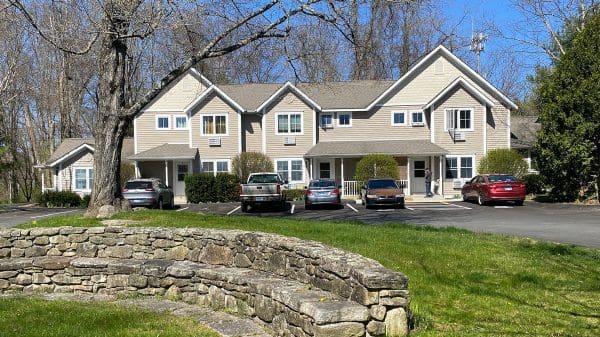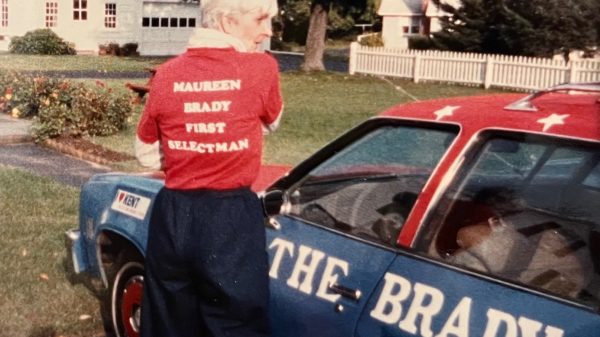KENT—The Inland Wetlands Commission made quick work of approving several applications that came before it Monday, July 22.
The first two items on the agenda—approval of deck within a regulated area at 73 Kent Cornwall Rd. and an application to adjust the accessway at 131 Treasure Hill Rd.—passed virtually without comment.
There was slightly more scrutiny of the third application from Kent Land Trust to create a 40-foot-by-60-foot parking area at 0 Skiff Rd. IWC member Ken Johnson said he believed the 85 yards of topsoil that would be removed was excessive, and that removing only 40 yards would have less impact on the wetlands, but other commission members disagreed.
Angus Gracey, representing KLT, said the amount to be removed was recommended by the contractor. Member Paul Yagid said that the removal of topsoil to the depth of one foot over the specified area “sounds like the correct amount,” adding, “You can’t put gravel on top of topsoil. It will create a mess.”
Johnson reconsidered his objection and the motion to approve was passed.
George Johannsen of Allied Engineering again appeared on behalf of Ronald and Michelle Saltz of 1 Anderson Acres in their bid to replace existing culvert pipes under a farm road crossing. The larger culvert pipe that will replace them is designed to prevent backups of water and subsequent flooding.
Chairman Lynn Werner asked if there is a maintenance plan to keep the culverts clear and Johannsen said the crossing is designed to funnel the water back into the river if there is flooding.
Under new business, David Birnbaum was given an agricultural exemption to channel water at 33 Camps Rd.
Land Use Administrator Tai Kern said the land has a “lot of water everywhere” and that Birnbaum had a plan to divert the water so the field, which is used for agricultural purposes, would dry faster. She said only the IWC could grant the exemption, but she was unsure how to classify it.
“Is this turning a wetland into a non-wetland?” Werner said. “It’s not like he would be reclaiming a wetland.”
Birnbaum reported that the land becomes “very wet” when storm water sheets across it. He suggested making small natural swales to channel the water to streams. He envisions the small channels as being grass-lined or, if necessary, installing erosion controls.
It was noted that animals pastured on the land churn up mud when it is wet, possibly creating erosion. Thinking through the proposal, Werner mused, “There is a fine line between directing water and not. This gets water to where it would naturally go without sheeting, which causes erosion as well.”
She concluded that the proposal was “kind of borderline, but I am leaning toward an agricultural exemption. It’s not changing an existing stream; it’s just managing stormwater runoff.”
The members agreed to grant an exemption with future monitoring “to make sure it doesn’t become something we didn’t intend.”
While it does not fall within its purview, the commission discussed an application to DEEP by Steven Abbate to have herbicides applied to state waters on his property at 99B Cobble Rd.
Using Google maps, the commission members viewed the site and determined there was an adjacent pond on a neighboring property and an apparent connecting waterway between the two.
The commission noted the information it did not have at hand. “It would be worthwhile knowing whether the ponds are connected, the flow of the water, whether there is a drinking water well nearby … We can’t act on this but we can tell the state they need to get more information and I think we should.”
Kern will convey the commission’s reservations to DEEP.


























